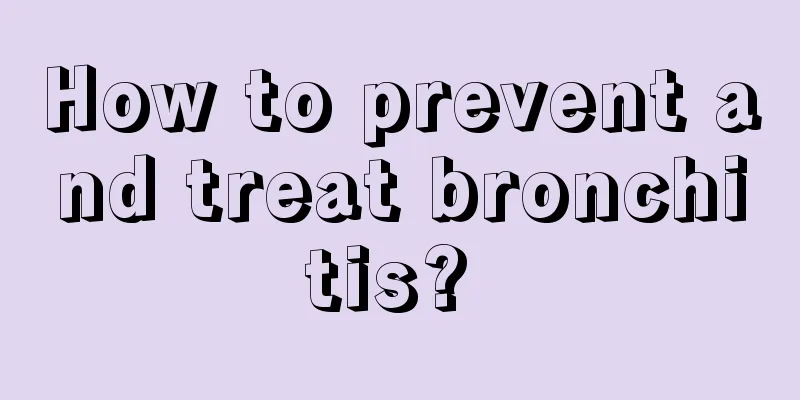Is it good to eat persimmons at night

|
Persimmon is a kind of fruit that many people love to eat. It is sweet, delicious and nutritious. Although persimmon has many benefits to the human body, there are some taboos when eating persimmons. Some people like to eat something before going to bed at night to help sleep, some people worry that eating persimmons at night is bad for the body, and some people will eat some persimmons at night. Is it good to eat persimmons at night? Let’s take a look at it next. 1. Is it good to eat persimmons at night? It is best to eat persimmons at night. Persimmons contain a large amount of persimmon gum and tannin. If eaten on an empty stomach in the morning, stomach acid will react with them to form clots, namely "gastric persimmon stones", which seriously affect digestion function. It is best to eat them after meals or at night. 2. Can I eat persimmons before going to bed? It is not recommended to eat persimmons before going to bed. Persimmon has very high nutritional value and is rich in protein, fat, carbohydrates, starch, pectin, tannins, multiple vitamins and minerals. Among them, persimmons have a relatively high sugar content. Eating persimmons before going to bed can easily lead to excessive sugar intake, which in turn causes fat accumulation. 2. What will happen if you eat persimmons before going to bed? Eating persimmons before going to bed can easily cause tooth decay. Persimmons are rich in sugars and pectin. The sugar content of mature persimmons is 15%, which will not only cause excessive calorie intake, but also the pectin will easily remain in the teeth and cause tooth decay. Therefore, it is best to rinse your mouth after eating persimmons at night. 3. When is the best time to eat persimmons Persimmons should be eaten one hour after a meal. Persimmons should be eaten one hour after a meal. The organic acids in persimmons help gastrointestinal digestion and increase appetite. Persimmons are rich in pectin, a water-soluble dietary fiber that has a good laxative effect. Therefore, it is best to eat persimmons one hour after a meal. 4. Who should not eat persimmons? 1. People with poor spleen and stomach function Persimmons are cold in nature and should not be eaten by people with cold stomachs. People with low gastric motility such as chronic gastritis, delayed emptying, indigestion, etc., should not eat persimmons after subtotal gastrectomy. 2. Anemia patients should eat less persimmons because they contain tannin, which easily combines with iron and thus hinders the body's absorption of iron in food. Therefore, anemia patients should eat less persimmons. 3. People with diabetes should not eat Persimmons are rich in sugars, mostly sucrose, glucose and fructose, which are easily digested and absorbed after eating, causing blood sugar to rise. Therefore, diabetics cannot eat persimmons. 5. How long after eating persimmons can you drink milk You can drink milk one hour after eating persimmons. Generally speaking, it takes 30 minutes to 1 hour for fruit foods to be digested in the body, but the ingredients contained in persimmons are relatively complex. It is better to drink milk after 1 hour of digestion in the body, which can reduce the possibility of adverse reactions and is safer. 6. Effects and contraindications of persimmon 1. Clear away heat and activate blood circulation Persimmon tastes sweet and astringent, and is cold in nature. It has the effects of clearing heat and moistening the lungs, removing dryness and quenching thirst. In addition, it has good effects in reducing inflammation, promoting blood circulation, lowering blood pressure and stopping bleeding. Applying persimmon juice on the wound can stop bleeding and relieve pain. 2. Treat Inflammation Persimmon contains flavonoids, which have antibacterial, vasodilatory and antipyretic effects. It is clinically used to treat acute and chronic inflammation caused by Gram-positive bacteria infection, with a cure rate of over 70%. It is effective in improving headaches and dizziness in patients with hypertension. 3. Sober up The tannic acid and enzymes in persimmons can break down alcohol, and the high content of sugar and potassium also has a diuretic effect, helping the body excrete alcohol and reducing the damage caused by alcohol to the body. Rich in vitamin C, it can also enhance liver function and protect the liver. 4. Persimmon frost nourishes the lungs The white frost on persimmon cake is persimmon frost, which contains mannitol, glucose, fructose and sucrose. It can be used to treat diseases such as dry throat, mouth sores, and dysentery. 5. Persimmon calyx reduces adverse qi Persimmon calyx is bitter in nature and can reduce adverse qi and stop vomiting. To treat hiccups, you can choose 9 grams of persimmon calyx and boil it in water. For vomiting during pregnancy, add rock sugar and boil it together. 6. Persimmon leaves stop bleeding Persimmon leaves have hemostatic effects and are used to treat coughing up blood, blood in the stool, diarrhea, and vomiting blood. Recent studies have found that persimmons and persimmon leaves have antihypertensive, diuretic, anti-inflammatory and hemostatic effects. 7. Taboos on eating persimmons (1) Do not eat with high-protein foods The tannic acid contained in persimmons reacts with the protein and calcium salts in high-protein foods to form precipitates, which will form gastric persimmon stones over time and cause gastrointestinal diseases. Therefore, persimmons should not be eaten with fish, meat or eggs. (2) Do not eat with cold foods Persimmons are sweet and cold in nature. If eaten with cold foods, they will weaken the digestive motility of the stomach and intestines and the secretion of digestive juices, thereby reducing the stomach and intestines' ability to break down food and causing gastrointestinal discomfort. Therefore, persimmons should not be eaten with bananas or mung beans. (3) Do not eat on an empty stomach When we are on an empty stomach, the secretion of gastric acid increases and the concentration is high. Persimmons contain a large amount of tannic acid and gelatin. If they are mixed with gastric juice, there is a high probability of causing stones, stomach bloating, stomach pain, etc. (4) Do not eat raw persimmons Raw persimmons contain too much tannin, so they will have a strong numbing taste when eaten and will also cause great irritation to the stomach. Therefore, you must ensure that the persimmons are ripe before eating them, otherwise you will experience discomfort. 8. How to choose persimmons 1. When purchasing persimmons, observe their appearance and choose those with larger appearance. 2. When buying hard green persimmons, press the surface of the persimmon with your fingers. If it feels hard, it is a good persimmon. 3. Observe whether the color of the persimmon is bright, and choose persimmons that are bright in color, without spots, scars or cracks. 4. When choosing soft persimmons, gently touch the surface of the persimmon with your hand. If the softness and hardness of the surface of the persimmon are evenly distributed and there is no hard local area, it is a good persimmon. 5. When choosing persimmons, you should choose those with regular shape and a bit square. Do not choose those with deformed surface and obvious bumps in some parts. 9. Who should not eat persimmons? 1. People with poor spleen and stomach function. Persimmons are cold in nature, so people with cold stomachs should not eat them. The formation of gastric persimmon stones may be related to gastric dysfunction. Therefore, people with low gastric motility such as chronic gastritis, delayed emptying, indigestion, and those who have undergone gastric resection should not eat persimmons. 2. People with diabetes. Persimmons are rich in sugars, mostly sucrose, glucose and fructose. They are easily digested and increase blood sugar levels. 3. Patients with anemia. The tannic acid in persimmons can combine with the iron in food, hindering the body's absorption of iron in food. At the same time, the precipitate formed by the combination of the two can cause gastrointestinal discomfort and even colic. Therefore, patients with anemia should not eat persimmons. |
<<: What are the reasons for numb face and stuffy chest?
>>: Why can't we eat crabs and persimmons
Recommend
Which part should I massage for dizziness
Nowadays, people pay more and more attention to t...
Who are the high-risk groups for cervical cancer? What should women do to prevent cervical cancer?
Miss Zhang just gave birth. In the past month, sh...
What should I do if I get bloating due to drinking? Tips to eliminate flatulence
Bloating is quite common nowadays. Generally, man...
Can you die from skin cancer in summer?
Will I die if I get skin cancer in summer? Summer...
Does coffee color make you look darker?
In real life, brown is a common color. It is a po...
The secret you don’t know: Let’s take a look at the hidden rules in the supermarket
When you walk into a supermarket, you probably wa...
Pain on both sides of the front of the waist
Generally speaking, if you have pain on both side...
Will thyroid cancer removal affect life expectancy?
For every thyroid cancer patient, they will worry...
What is the best medicine for pituitary tumor
Everyone is familiar with pituitary tumors. It is...
How can I make my dyed hair darker?
Hair is a naturally growing hair. Everyone has a ...
Is reverse abdominal breathing harmful to humans?
If reverse abdominal breathing is not mastered we...
Regular examination of familial gastric cancer is the perfect solution
Once it is confirmed that you have a genetic gene...
Symptoms of peritoneal metastasis of colorectal cancer
When intestinal cancer causes peritoneal metastas...
What are the common causes of lung cancer?
The cause of lung cancer is still not completely ...
What are the symptoms of lung cancer? 5 common symptoms of lung cancer
In fact, clinically, lung cancer can affect the p...









